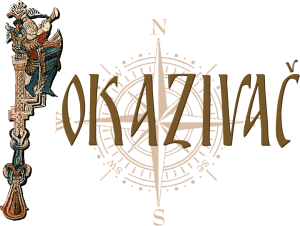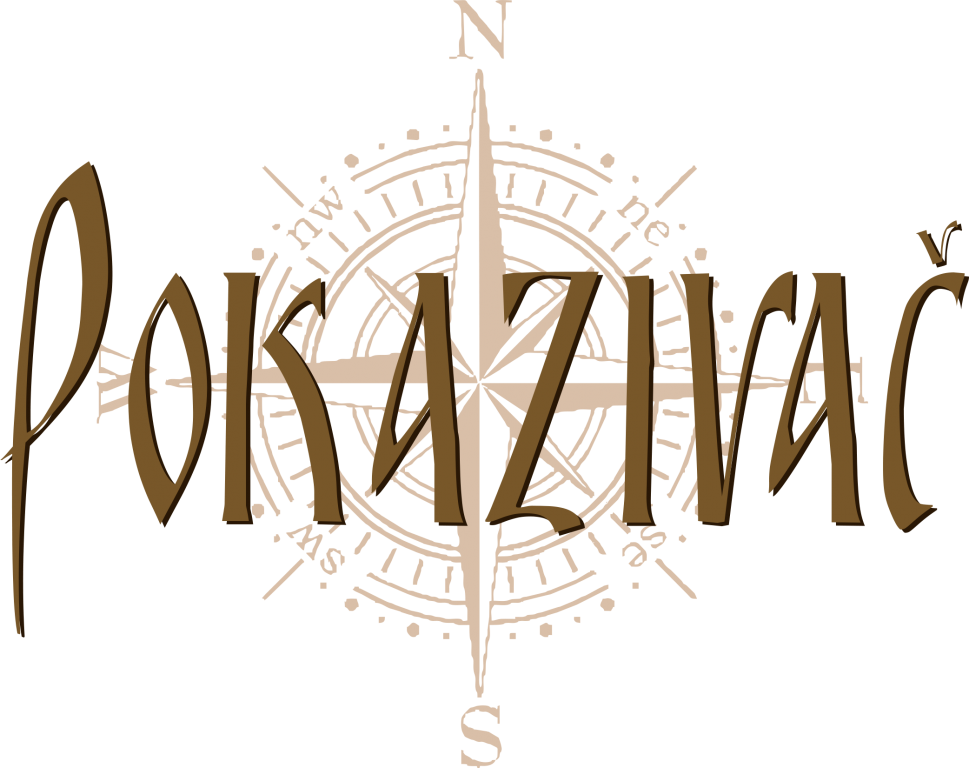Gospodine Kuazi, vi ste afirmisani pesnik iz Bangladeša. Kada ste počeli da pišete poeziju i šta vas je inspirisalo da napišete prvu pesmu?
Jednostavno se desilo, P.B. Šeli je rekla da je to božanski osećaj, kada se iskre i stihovi stvaraju. Možda znate da je pesnik Valmiki 500. godine pre nove ere napisao epsku svetu knjigu Ramajana. Dok se kupao u potoku Tamasa, video je kako se par ždralova pari, srce mu je bilo puno radosti zbog tog božanskog prizora, ali onda je odjednom strela pogodila mužjaka i on je umro. Voda je postala crvena od krvi mužjaka. Valmiki je postao tako tužan, a zatim je stvorio prvi stih Ramajane.
U mom slučaju, koliko se sećam, bio sam u četvrtom razredu, u poseti selu po majci. Otišao sam na njivu i gledao sa uživanjem kako farmeri sade biljke duvana. Istog trenutka sam napisao pesmu, verovatno je to bila moja prva pesma, još uvek se sećam dva reda. Prevod glasi: „Rukuje se nekoliko farmera koje sade biljke duvana / Ko to u daljini svira flautu, sedeći pod senkom banjanovog drveta?“
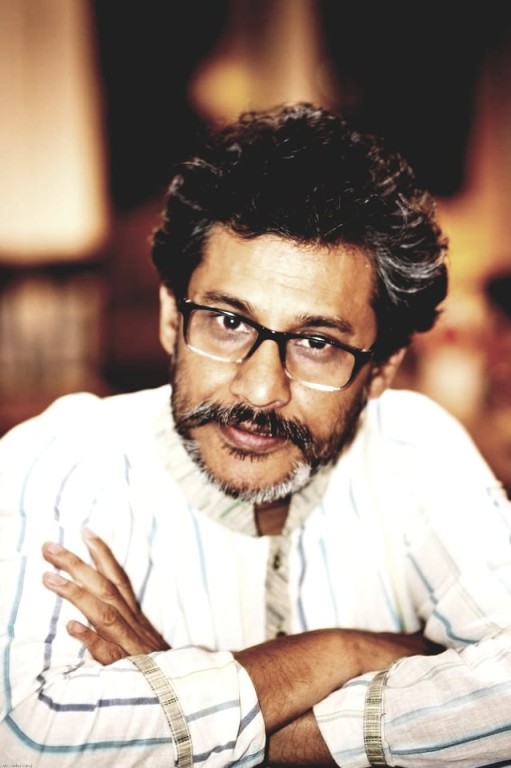
Koliko često ste kao dete čitali poeziju i druge knjige? Šta vam je najviše pomoglo da razvijete maštu i senzibilitet, i postanete uspešan pisac?
Od početka osnovne škole obavezno je proučavanje jedne knjige književnosti. Kako sam napredovao u više razrede, počeo sam da čitam čitavu knjigu za veče. Bio sam jako žedan književnosti, od detinjstva. Malo kasnije, kada sam bio u šestom/sedmom razredu, dobio sam priliku da čitam ruske bajke od jednog od svojih komšija. Te knjige su mi mnogo pomogle u izgradnji mašte.
Čitajte mnogo Aleksandra Puškina, Aleksandra Afanasjeva i kasnije Hansa Kristijana Andersena. Priču o Ivanu i Anuški još uvek mogu da zamislim. Znate, možda ćete se iznenaditi kad saznate da i dalje volim bajke.
Kada sam krenuo na fakultet počeo sam čitati sve verske knjige. Čitao sam Kuran, Gitu, Bibliju, Ramajanu, Mahabarat, Toru, gotovo sve verske knjige. Grčka mitologija mi je istovremeno privukla pažnju, gutao sam znanje iz knjiga. Raspon mog proučavanja je prilično širok, bajke, verske knjige, mitologije, savremena književnost, najstarija književnost na svetu. Verujem da je širok spektar studija izgradio moju bazu za pružanje svestranosti u mom radu, posebno u poeziji.
Živite u Njujorku sa porodicom. Koliko se vaš porodični život u Bangladešu razlikovao i koliko se vaše detinjstvo razlikuje od detinjstva vaše dece? Da li vam nedostaje Bangladeš?
Apsolutno je drugačije. Razlog nije samo geografska promena, već i vreme. U mom detinjstvu nije bilo mobilnih telefona, računara, elektronskih uređaja, igrali smo se na polju sa loptama, često bez ičega, samo smo crtali terene. Jedna grupa bi pokušala da pređe na drugu stranu terena, a druga grupa bi pokušala da ih spreči u tome.
Moja deca (najstariji je proveo 9 godina u Bangladešu), su se igrala sa pametnim uređajima. Kultura je drugačija, igračke su različite, društvo, stav – sve je drugačije, a stvari se prirodno razvijaju.
Nedostaje mi Bangladeš, ali vremenom sam odlučio da je plavo nebo moj krov, ceo svet je moj dom, sva ljudska bića su moja porodica, čak donekle verujem da su sva živa bića porodica, svi smo mi povezani.
Ipak, imam rođeno mesto, osećam nešto posebno u srcu, vezano za mesto gde sam rodjen. Takođe, verujem da – ako nemate državu, ne možete biti internacionalac. Ali nemojte posedovati državu toliko da vas ona izoluje od drugih, što vas može učiniti ponosnim.
Previše patriotizma može izazvati rasizam. Sve dok volite svoj narod, vaša zemlja je u redu, ali morate biti veoma oprezni da se u vašem umu ne stvori mržnja prema drugima, zbog prevelike ljubavi prema svojoj zemlji.
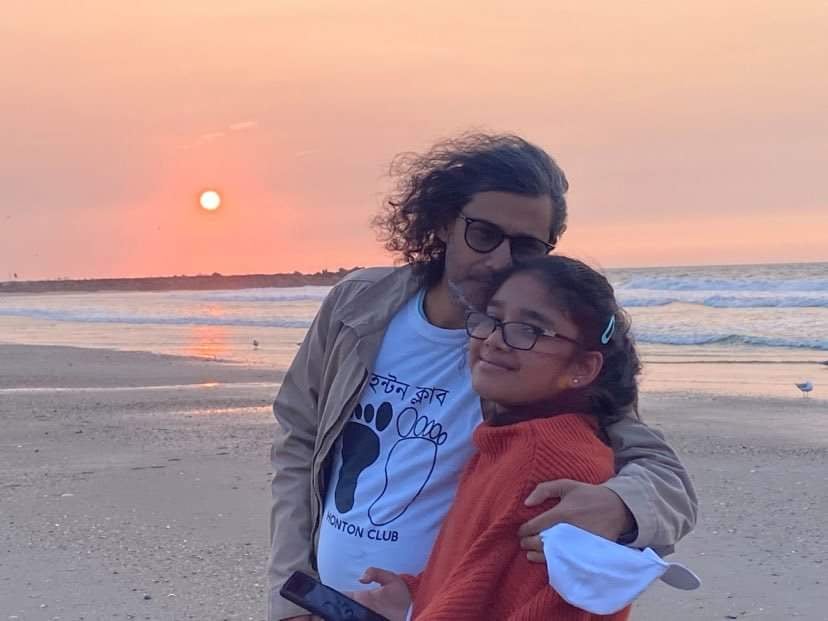
Kako biste opisali život pesnika u Njujorku? Da li je lako pronaći inspiraciju i saradnike, odštampati knjigu?
Kako i dalje uglavnom pišem na Benglaskom, ne vidim nikakav problem kada je u pitanju udruživanje i objavljivanje. U Indiji i Bangladešu imam izdavače sa kojima sarađujem. Nedavno sam počeo da gradim mrežu sa međunarodnom zajednicom pesnika/pisaca, tako sam vas pronašao, Anita. Preveo sam mnoge međunarodne pesnike, objavljene su dve knjige, Pesme Jalaluddina Rumija i Pesme Ezre Pound. U poslednjih nekoliko meseci radio sam sa nekoliko savremenih poznatih američkih pesnika, poput: Rae Armantrout, Aaron Shurin, Mari Jo Bang, i radiću sa još njih.
Takođe sam počeo da pišem na engleskom, ali moram priznati da sam na engleskom još uvek početnik, mnogo toga treba da naučim pre nego što slomim tržište. Ovde je većina pesnika studirala program pisanja MFA i skoro svi predaju na Univerzitetu. Verujem da će prodor na američko tržište poezije biti vrlo težak. Znate, pesme bengalskog pesnika, nobelovca Rabindranatha Tagora, objavljene su u Poetri Magazinu po preporuci Ezre Pounda, to je džinovski silos, i kao i svaka druga zemlja ili kultura, u džinovskom postoji mnogo manjih silosa.
O čemu najčešće pišete? Koja je vaša najdublja poruka koju želite da pošaljete kroz priče i pesme koje pišete?
Bavio sam se širokim spektrom žanrova: beletristika, putopis, prikaz knjiga, priča, autobiografija, pisao sam skoro sve, a na osnovu mojih priča nastale su i neke TV drame. Žanr koji najviše volim je poezija. Do sada sam objavio 28 zbirki pesama i 3 velike kompilacije. Mnogi poznati pesnici recitovali su moje pesme u različitim medijima. Što se tiče tema, takođe sam obuhvatio mnoga područja. Ono za šta se sada zalažem je humanost, humanost i humanost.
Kao što sam ranije rekao, sva ljudska bića su povezana. Ovaj svet je veliki kotao, svi stojimo oko njega. Sve što proizvedemo sipamo u šerpu; sve što nam treba za nas uzimamo iz tiganja. Kao da smo svi u velikoj zajedničkoj porodici. Zamislite, ako proizvedem otrov, gde će to otići? Otići će u posudu, a deo će mi se vratiti jer nemam drugih izvora hrane.
Uloga mislilaca, pesnika, pisaca je da svojim oružjem minimiziraju proizvođače otrova. Kako to radimo? Moramo da upoznamo ljude sa svojim spisima. Da, dok mi, pesnici, to radimo, moramo da održimo i standard estetike. Treba da se setimo, radi umetnosti. Ne bi trebalo da stvaramo slepo utvrđenje, moramo da držimo otvorene neke prozore u tvrđavi, tako da ljudi iz daleka mogu videti da nešto blista unutar utvrde, onda će pokušati da potraže vrata za ulazak. Neki moderni ili postmoderni pesnici samo stvaraju slepa utvrđenja ili neplodno polje.
Volite zagonetke, volite skrivati poruke, očekujete da aktivni čitaoci otkopaju poruku koja je unutra, ali dajte neki trag kako biste čitaoce privukli da kopaju.
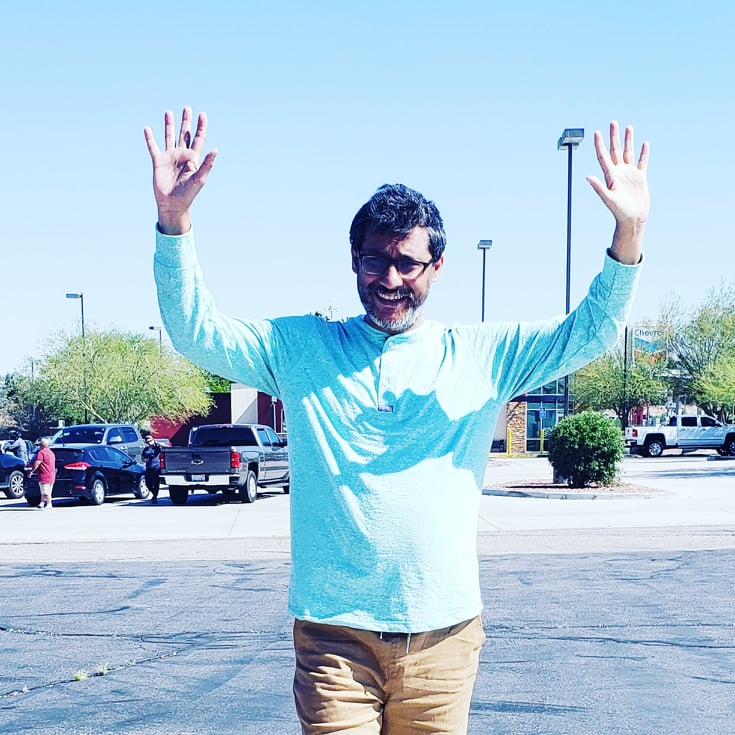
Koliko knjiga ste objavili do sada?
Objavio sam preko 70 knjiga, od kojih su 28 zbirke pesama.
Kojom vašom knjigom se najviše ponosite?
Veoma je teško razlikovati najmilije među sopstvenom decom. Napisao sam dva toma autobiografije, verujem da bi kroz te knjige ljudi mogli da me upoznaju, moju borbu i istovremeno faze kroz koje sam prolazio u svom životu. Napisao sam knjigu kratkih priča: 7 priča prikazuje 7 jezičkih mučenika jezičkog pokreta iz 1952. godine. Smatram da je to jedna značajna knjiga.
Možda znate da je 21. februar Međunarodni dan maternjeg jezika, razlog za odabir tog dana je to što je 21. februara 1952. grupa mladih Bengalaca protestovala protiv odluke pakistanske vlade da će samo urdu biti državni jezik Pakistana, kada više od polovine stanovništva govori Bengalski. Tog dana, nakon što su mnogi demonstranti streljani, a 7 ih je poginulo, napisao sam knjigu o tih 7 šehida, to su bili: Rafik, Salam, Barkat, Jabbar, Safiur, Aval i Ohiullah.
Među knjigama poezije smatram da su sve podjednako važne, ali očigledno je da one koje sam kasnije napisao imaju više mudrosti. Uveo sam pesme bez glagola u bengalsku književnost, knjiga je prvo objavljena u Indiji, a kasnije sa još nekoliko pesama u Bangladešu. Godine 2019. prevedena je na jezik Odisha (jezik indijske države Odisha). Smatram da je to bio moj značajan doprinos.
Vi volite i da slikate, kada ste počeli da istražujete ovo polje umetnosti?
Nikada ranije nisam crtao ili slikao. Tokom pandemije, kada sam vreme uglavnom provodio kod kuće, počeo sam da slikam. I dalje ne smatram sebe slikarom, mada su neka moja dela prodata. Slikanje je za mene vrsta meditacije, nakon što završim sa slikanjem, osećam se jako dobro. Ponekad osećam da ne mogu dovršiti i da nikada neću moći da dovršim sliku, tada se osećam veoma uznemireno i stresno.
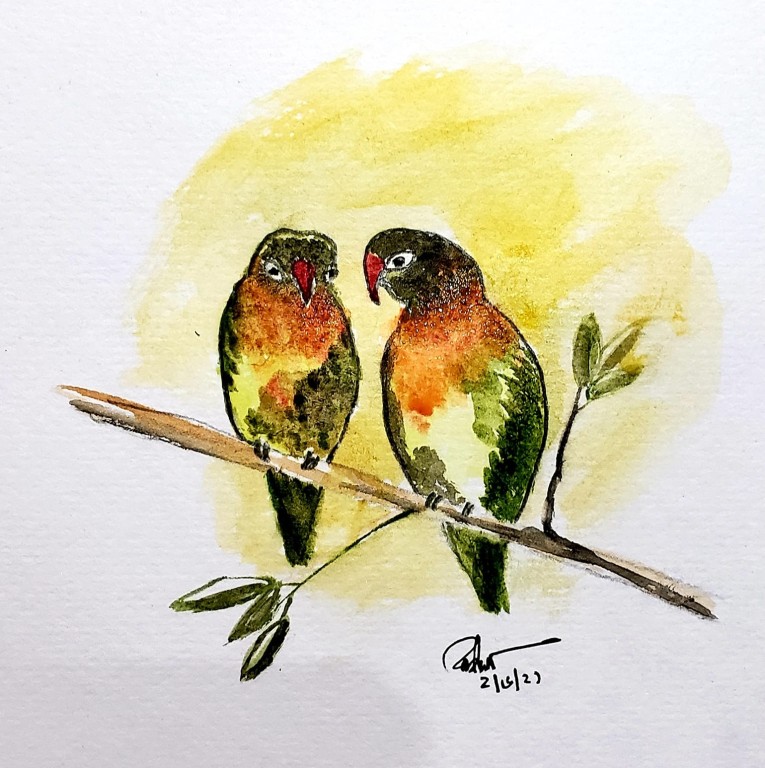
Da li u poslednje vreme, više uživate u pisanju ili u slikanju?
Priorit mi je pisanje, posebno poezija. Verujem da mogu mnogo da doprinesem u oblasti poezije. Istovremeno ću i dalje slikati. Moj izdavač kaže da će uraditi nešto posebno sa mojim slikama, još uvek ne znam šta.
Vi ste posvećen suprug i otac. Verujem da su vaša deca i supruga ponosni na vas. Koliki je značaj umetnosti u vašoj porodici? Da li su i vaša deca kreativna poput vas?
Volim svoju porodicu i jednako volim i širu porodicu – svet. Vi vidite da mnogo radim za svoju porodicu, ali namera mi je da to učinim za sve članove moje šire porodice. Moj sin Kuazi Johir je dobar govornik, poznaje umetnost govora, moja starija ćerka je autistično dete, a moja mlađa ćerka ima samo 12 godina. Ona odlično peva, ali želi da bude profesionalni kreativni pisac. Supruga me mnogo podržava, njeno prisustvo za mene je potpuna inspiracija, ne mora ništa da radi.
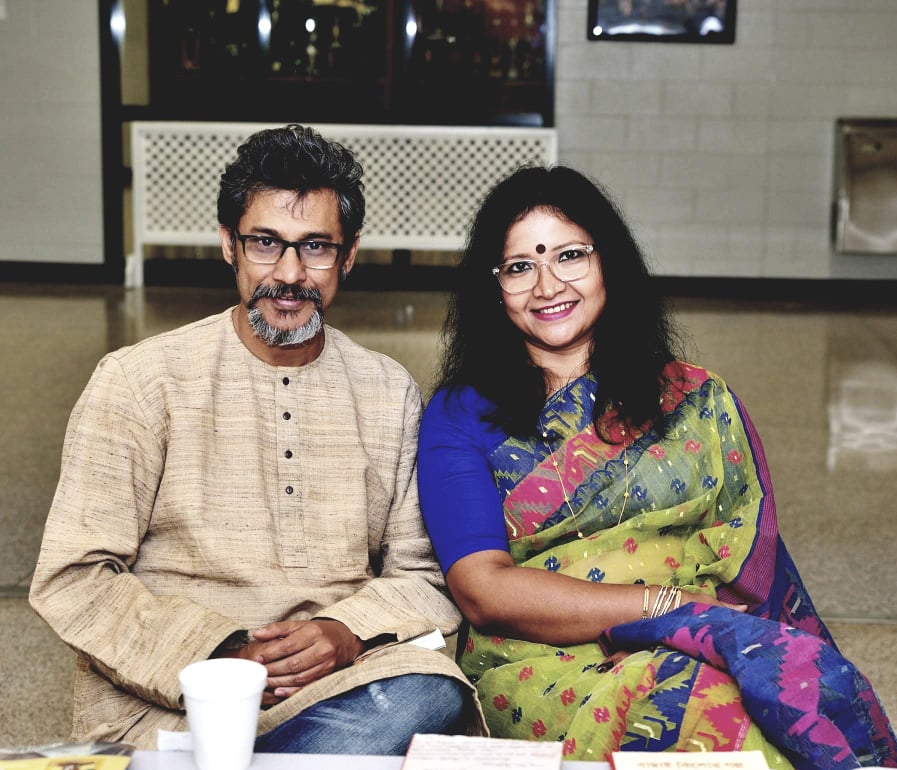
Šta za vas predstavlja smisao života?
Budite srećni i usrećite druge, živite u sadašnjosti, sanjajte o budućnosti, učite iz prošlosti. Ostanite pozitivni sve vreme. Svaki problem ima rešenje, možda u trenutku to ne znamo, ali vremenom ćemo to saznati. Zato, nemojte biti frustrirani, već tražite rešenje. Ne mislim o tome koliko sam dobio od drugih, zašto mi ne daju više, umesto toga, uvek mislim koliko sam dao drugima i šta još moram da dam. U svakom trenutku, ako osetim da nemam šta da dam, prazan sam, ne nalazim smisao života.
Koju poruku biste poslali piscima / čitaocima iz Srbije i drugih balkanskih zemalja?
Osetite vezu sa svime, potražite je. Blago se nalazi svuda oko nas, kao i trnje, pepeo, bezvredno kamenje, izaberite ono što vam treba. Dok hodate, uvek ćete pronaći grupu ljudi koja vas pljuje, baca kamenje na vas, a takođe ćete pronaći i drugu grupu koja vas hvali, baca latice ljubavi. Nemojte se plašiti kamenja, pljuvanja, a nemojte biti ni ponosni na cveće, pljusak ljubavi. Vaš posao je da krenete napred prema kraju avenije. Možda ste veoma talentovani, ali morate steći mudrost, to dolazi iz iskustva. Učite koliko god možete, primenite svoje znanje i na stvarnom poslu da biste stekli mudrost.
PONOVNO ROĐENJE
To je metak koji sam upotrebio
ali ti si se ponovo rodio u gustoj šumi
i postao si zavisan od toga…
Svake noći umireš da bi se ponovo rodio.
KAVEZ
Svetlost u ključaonici, šareni udar, rojevi leptira;
ipak svetlo je.
Krila lepršaju, ali ne lete, njišu se.
Revolucionari sami sebe bacaju
prema visećoj liniji zemlje,
plava narukvica neveste,
kroz krug vidi nebo,
sloboda.
Oni su već otišli, kao i oni pre njih,
pesme njihovih nogu valjaju se po travnjaku,
u mekom mraku sumraka.
Tražeći staze,
napiši novu pesmu zore, promuklo,
biće vođeni u hramovima, džamijama,
u talasima trinaest stotina reka;
ništa drugo neće biti truba
u urliku novorođenčadi,
osim vriska slobode.
Krokodilski zubi, zarđala gvozdena šipka, tama…
svetlost razvija nova krila u ključaonici, prašina u bojama duge,
primamljivo nebo izdaleka…
Plešući zmaj kopa rupu u oblaku,
grudi praznine.
REKA
Talasi povlače reku u dnevnu sobu;
čudan gost je seo,
devojke su zatvorile bujicu u svoje džinovske tegle…
Godinama kasnije mnogi potoci, u peharima,
šetali su po sunčanom dvorištu,
i lomili se, kotrljali, sve dalje i dalje…
ODNOS
Jedne večeri, pre mnogo godina, momak i devojka su stajali na suprotnim stranama mosta, okrenuti jedan prema drugom. Znali su da svaki od njih poseduje polovinu mosta. Mladić je bio prvi. On je krenuo prema devojci i zakoračio na njeno imanje, a potom ga je ona odgurnula i zakoračila na njegovo imanje. U znak odmazde, on ju je odgurnuo i ponovo prešao na njenu stranu. Dugi niz godina gurali su jedno drugo: ljutnjom, anksioznošću i odbranom. Jednoga dana, shvatili su da oboje stoje tačno na sredini mosta, na ivici međusobnog imanja. Držali su se, ne iz besa, već iz ljubavi. Između njih je procvetao crveni cvet. Shvatili su da im celi most pripada i da su im obe strane reke sada otvorene.
KRATKA BIOGRAFIJA:
Kuazi Johirul Islam jedan je od najvećih pesnika bengalske književnosti, rođen je 1968. Predstavio je pesme bez glagola. Kuazi je objavio 28 zbirki pesama u Bangladešu i Indiji. Njegova dela su prevedena na albanski, odiški i engleski jezik. Krijapadin Krijakolap (Radnje bez glagola), prvobitno objavljen u Zapadnom Bengalu, kasnije prevedena verzija odiškog jezika objavljena u indijskoj saveznoj državi Odisa. Kuazi je preveo Jalaluddin Rumi i Ezra Pound, obe knjige su postale bestseleri u Bangladešu. Njegove značajne publikacije su: Purush Prithibi (Muški svet), Rastati Kromosho Shoru Hoie Jacche (Put se sužava), Shurjaster Porer Firisti (Raspored po zalasku sunca), Dehokabia (Melodija tela), 100 Haiku, Om theke Uccharito (Rezonancija Om ), Masalarajia (Kraljevstvo začina), Vetore Temon Kichhu Nei (Unutra nema ničega) itd. Za izvanredan doprinos bengalskoj književnosti, Kuazi je dobio nagradu pesnik Jasimuddin (Bangladeš), nagradu Rasamati (Indija), nagradu Jesmin Khan (Los Anđeles, Kalifornija), nagradu za Dan nezavisnosti 2021 (Dallas, Teksas), nagradu Fondacije Dream ( Njujork, SAD). Kuazi je magistrirao menadžment na Univerzitetu u Daki. On je međunarodni profesionalac Ujedinjenih nacija.
INTERVIEW WITH POET QUAZI JOHIRUL ISLAM
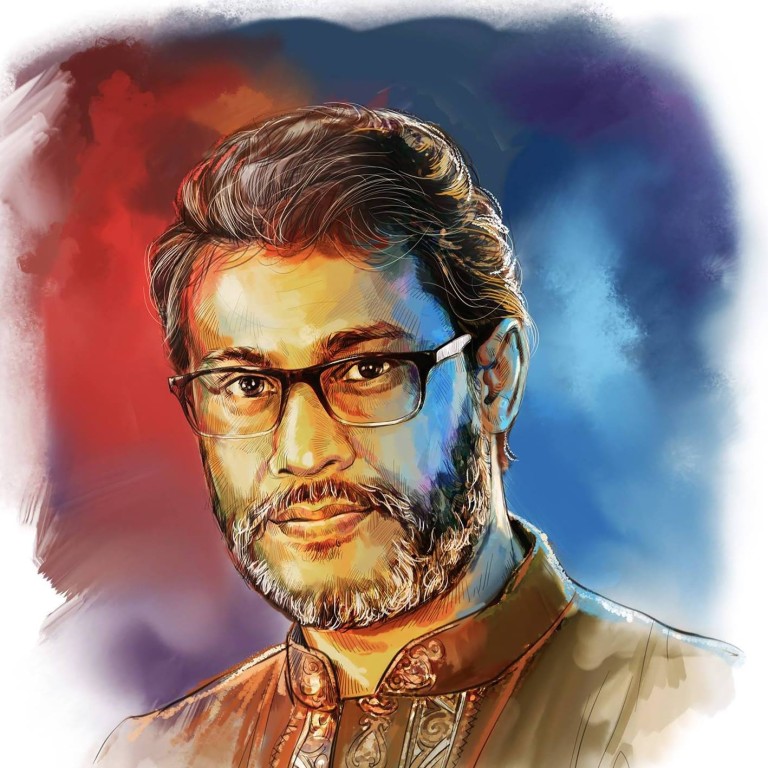
Mr. Quazi, you are affirmed poet from Bangladesh. When did you start writing poetry and what was the first thing which inspired you to write the first poem?
It happens, P.B. Shelly said, it’s a divine feeling, sparks and the verses are created. You might knowthe poet Valmiki, in 500 BC, wrote the epic holy book Ramayana. While he was bathing in the Tamasa stream he saw a crane couple were mating, his heart was full of joy seeing that divine scene, but then, suddenly an arrow hit the male and it died, water became red with the blood of male crane. Valmiki became so sad, then he created the very first verse of Ramayana. In my case, as far as I can remember, I was in grade four, visited my maternal village, went to the crops field and watching how beautifully the farmers were planting the tobacco plants. That very moment I wrote a poem, perhaps that was my first poem, I still can remember two lines. If I translate them in English, would be: “Shaking hands few farmers planting baby tobacco plants/ Who is playing flute afar sitting under the shadow of banyan tree?”
How often were you reading poetry and other books as a child? How much it helped you grow your imagination and sensibility to become a successful writer, as we see you today?
From the elementary class it is mandatory that we study one book of literature. When I was promoting to new grades, the first night I used to read the entire book of literature at once. I was very thirsty for literature since my childhood. Little later, when I was in grade 6/7, got the opportunity to read Russian fairy tales from one of my neighbors. Those books helped me to build my imagination a lot. Read a lot of Alexander Pushkin, Alexander Afanasyev and later Hans Christian Andersen. The story of Ivan and Anushka I still can visualize. You know, perhaps you will be surprised to know that still I like fairy tales. When I was in college started to read all religious books, I read Koran, Geeta, Bible, Ramayana, Mahabharat, Tora almost all religious books. Greek mythology drew my attention at the same time, I not only read, I just swallowed them. Range of my study is quite wide, fairy tales, religious books, mythologies, modern literature, oldest literature of the world. I believe the wide range of study built my base to deliver versatility in my work, especially in poetry.

You are living in New York with your family. How different was your family life in Bangladesh and how different was your childhood from the childhood your children have in NYC? Do you miss Bangladesh?
It is absolutely different. Reason is not only the geographical change, also the time. In my childhood there were no cell phones, no computers, no electronic devices, we used to play in the filed with bats, balls, even sometimes without anything, just drawing courts on the ground we played, one group tried to cross from one court to another, the other group tried to stop them crossing. But my children (the eldest one spent 9 years in Bangladesh), played and playing with smart devices. Culture is different, toys are different, company, attitude everything is different, and things are naturally evolving. I do miss Bangladesh but I have been slowly making up my mind that the blue sky is my roof, the entire world is my home, all human beings are my family, even to some extend I believe all living things are family, we all are connected. But still I have a birthplace, I feel something in my heart for that place. I also believe that if you don’t have a country you can’t be an international. But do not own the country that much what may isolate you from others, what may make you proud. Too much patriotism may cause racism, as long as you love your own people, your own country is fine, but you need to be very careful that no hatred is created in your mind for other, because of too much love for your country.

How would you describe the life of a poet in NYC? Is it easy to find inspiration and associates, and finally to print a book?
As still I mostly write in Bangla, so I don’t see any issues of association and publication. In India and Bangladesh, I have publishers lined up for my new scripts. Very recently I have started building network with international poets/writers’ community, that is how I have found you, Anita. I have translated many international poets, two books have been published, Poems of Jalaluddin Rumi and Poems of Ezra Pound. In last couple of months, I worked with few contemporary famous American poets, such as: Rae Armantrout, Aaron Shurin, Mary Jo Bang, and will work with more. I also started writing in English, but I must admit that in English I am still a beginner, lot of things to learn before I crack down the market. Here, most of the poets studied MFA writing program and almost all of them are teaching in the University. Penetrating in American poetry market, I can imagine, will be very difficult. You know, Nobel Laureate Bengali poet Rabindranath Tagor’s poems were published in Poetry Magazine with the recommendation of Ezra Pound, it is a giant silo, and like any other country or culture there are many smaller silos inside the giant one.
What do you write about the most? What is your deepest message that you want to share through your poems?
I covered a wide range of genre, fiction, travelogue, book review, story, autobiography, I wrote almost everything, based on my stories some TV dramas were made as well. But the genre I love most is poetry. So far, I have published 28 collections of poems and 3 large compilation, many famous reciters recited my poems in different media. In terms of subjects, I also covered many areas. Where I stand now is humanity, humanity and humanity.
As I said earlier, all human beings are connected. This world is a large pan, we all are standing around it. Whatever we produce we pour in the pan; whatever we need for us we take from the pan. It is like we all are in a big joint family. Now imagine, if I produce poison where that will go? It will go to the pan and a portion of it will come back to me because I don’t have any other sources for my food. The role of thinkers, poets, writers is to use their weapons to minimize poison producers. How do we do it? We need to aware people with our writings. Yes, while we, poets, do it, we need to maintain the standard of aesthetics as well.
We should remember, for the art sake, we should not create a blind fort, we must keep some windows open in the fort, so that people from a far can see something is dazzling inside the fort, then they will try to look for a door to get in. Some modern or postmodern poets just create blind forts or barren field. You like riddles, you like to hide messages, you expect active readers to dig out the message that is fine but give some clue so that readers get attracted to do the digging.

How many books you have published so far?
I have published 70 plus books, 28 of them are collections of poems.
Which one makes you the most proud?
It is very difficult to differentiate most loved ones among own children. I wrote two volumes of autobiography, I believe through those books people would be able to know me, my struggle and at the same time, the time I have been passing in my lifetime. I wrote a book short stories: 7 stories depicted 7 language martyrs of 1952 language movement. I consider that one a significant book. Perhaps you know the 21st February is the International Mother Lnguage Day, the reason to choose that day is, on the 21 February of 1952 a group of young Bengalis protested against the decision of Pakistan Government that only Urdu will be the state language of Pakistan, when more than half of the population speaks in Bangla. On that day and day after many protesters were shot and 7 died, I wrote the book about those 7 martyrs, they were: Rafiq, Salam, Barkat, Jabbar, Safiur, Awal and Ohiullah. Among the books of poetry, I consider all are equally important but obviously the ones I wrote later resonates more wisdom. I have introduced verb-less poems in Bengali literature, the book was first published in India and later with few more poems in Bangladesh. In 2019 it was translated in Odisha language (language of Odisha state of India). I consider that was a significant contribution of mine.
You also like to paint, when did you start exploring this field of art?
Quazi: I never drew or paint before. In pandemic, when mostly stayed at home I have started painting. I still don’t consider myself a painter, though some of my works were sold. Painting to me is a kind of meditation, after I complete a painting work, I feel very good. Sometimes I feel I could not complete and I would never be able to complete, that time I feel very unsettled and restless.

Do you prefer writing or painting last days? Are there periods for each of those creative areas or you can combine them easily?
Quazi: My priority is writings, especially poetry. I believe I have a lot to contribute in the field of poetry. At the same time, I will continue to paint as well. My publisher is saying that they will do something very special with my paintings, I don’t know what, and he is discouraging to sell them.
I see that you are dedicated husband and a father. I am pretty sure your children and wife are very proud of you. What is the meaning of art to your family? Are your children also creative like you?
Quazi: I love my family and I equally love the extended family, the world. You all see I do a lot for my own family because I have limited capacity, but my intention is to do for every one of the extended family. My son Quazi Johir is a good speaker, he knows the art of speaking, my elder daughter is an autistic child and my younger daughter is just 12 years old, she sings very well but she wants to be a professional creative writer. My wife supports me a lot, her presence beside me is a complete inspiration, she doesn’t need to do anything.

What is the meaning of life for a versatile artist like you?
Quazi: Be happy and make others happy, live in present, dream for future, learn from the past. Remain positive all the time. Every problem has a solution, perhaps at the very moment we don’t know that but in course of time we will know it, so, don’t be frustrated, look for solution. I do not think how much I got from others, why are they not giving me more, instead, I always think how much I gave to others and what else I have to give. Any moment if I feel that I have nothing to give, I am empty, I don’t find the meaning of life to live.
Would you like to send some message to writers / readers from Serbia and other Balkan countries?
Quazi: Feel the connection with everything, look for it. Treasures are everywhere, as well as thorns, ashes, worthless stones, pick the one you need. When you are walking, you will always find a group of people spitting at you, throwing stones and also you will find another group praising you, throwing petals of love to you, don’t be scared of stones, spits, don’t be proud of flowers, shower of loves, your job is to move forward towards the end of the avenue. You may be very talented, but you need to earn wisdom, that comes from experience. Study as much as you can, also apply your study in real work to gain wisdom.
REBORN
That was a bullet I have used
But you were reborn in the dense wood
And you got addicted to it…
Every night you die to be reborn.
CAGE
Light in keyhole, variegated gush, swarms of butterflies;
bright, bifurcated though.
Wings are flapping but not flying, wobbling.
Revolutionaries hurl themselves
towards the hanging earth-line,
the blue bangle of bride,
through the circle they see sky,
the freedom.
Those have gone before and those had before them,
songs of their feet trill in the turf,
at the soft dark of twilight.
Yearning tracks,
write the new song of dawn, hoary,
will be choired in temples, mosques,
in the ripples of thirteen-hundred rivers;
nothing else will be trumpet
in the howl of newborns,
except the squeal of freedom.
Crocodile’s teeth, rust iron bar, dark…
light unfurls new wings in the Keyhole, rainbow dust,
alluring sky afar…
A dancing kite digging hole in the cloud,
the bosom of void.
RIVER
Ripples pull the river to living room;
strange guest, sat,
girls imprisoned torrent in their giant jars…
Years later brooks, many, in goblets,
strolling on the sunny yard,
breaks, rolls towards far and farther…
RELATIONSHIP
One evening, many years ago, they both stood up on opposite sides of a bridge, facing each other. They knew each of them owned one-half of the bridge. The boy was first. He advanced towards the girl and he stepped onto her property, and when she pushed him back, she also stepped in his property. In retaliation the boy pushed her back and again stepped in her side. For many years they have pushed each other back with anger, anxiety and defense. One day they have realized that both of them were standing right at the middle of the bridge, at the edge of each other’s property, and they were holding each other, not out of anger, but with love. A red flower bloomed between them. They have realized the entire bridge belonged to them and the both sides of the river are now open for them.
SHORT BIO:
Quazi Johirul Islam is one of the major poets of Bengali literature, was born in 1968. He introduced verb-less poems. Quazi has published 28 collections of poems in Bangladesh and India. His works have been translated in Albanian, Odisha and English. Kriyapadhin Kriyakolap (Actions without Verb), originally published in West Bengal, later translated version of Odisha language published from Odisha state of India. Quazi translated Jalaluddin Rumi and Ezra Pound, both the books became bestsellers in Bangladesh. His notable publications are: Purush Prithibi (Masculine World), Rastati Kromosho Shoru Hoye Jacche (Road is getting narrow), Shurjaster Porer Firisti (After sunset schedule), Dehokabya (Melody of Body), 100 Haiku, Om theke Uccharito (Resonance of Om), Masalarajya (Spice Kingdom), Vetore Temon Kichhu Nei (There is nothing inside) and so on. For his extra-ordinary contribution to the Bengali literature Quazi was awarded Poet Jasimuddin Award (Bangladesh), Rasamati Award (India), Jesmin Khan Award (Los Angeles, California), Independence Day Award 2021 (Dallas, Texas), Dream Foundation Award (New York, USA). Quazi earned a master’s degree in management from the University of Dhaka. He is an International Professional of the United Nations.
Prevod: Anita Pešić
